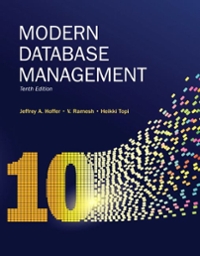Question
Research more on given Canadian-based construction claim case or situation. {Ontario Power Generation v. Alstom Canada Inc. case, which was heard in the Ontario Superior
Research more on given Canadian-based construction claim case or situation. {Ontario Power Generation v. Alstom Canada Inc. case, which was heard in the Ontario Superior Court of Justice in 2015. In this case, Ontario Power Generation (OPG) contracted Alstom Canada Inc. to supply and install new turbines at a hydroelectric power plant. The contract included a completion date of November 30, 2009, with a liquidated damages clause that would apply if the project was not completed on time.}
Conduct a legal analysis and develop a "legal argument" which is merely a legal analysis. The premises of a legal argument consist of facts, laws, your interpretation of facts and laws, as well as the opinion of the person making the legal argument (of course, that's you!).
For your argument, please address EACH of the questions below:
Please put your paper in the following format:
- Abstract (explaining botharguments, only one Abstract needed)
- Overview of case (please mention company names)
- Construction arguments w/ two references
- Facts (What are the factsbearing on the case? The term fact applies to the events, or alleged events, that have led to a claim or lawsuit. The facts are important because they are the basis for your argument.)
- Issue(s) (What is (or are) the issue(s) being discussed by the argument? The issue is whatever the parties are arguing about. The issue might be something like "Is the contractor entitled to payment?"; "Did the contractor breach the contract?"; etc.)
- Premise (What are the premisesof the argument? The most common type of premise in a legal argument is a law or some type of rule. Or could be the contract, an example being "a party must honor its contract.")
- Conclusion (What is the argument trying to convince you to believe? In other words, what is the conclusion of the argument)
- Non-construction arguments w/ two references
- Facts (What are the factsbearing on the case? The term fact applies to the events, or alleged events, that have led to a claim or lawsuit. The facts are important because they are the basis for your argument.)
- Issue(s) (What is (or are) the issue(s) being discussed by the argument? The issue is whatever the parties are arguing about. The issue might be something like "Is the contractor entitled to payment?"; "Did the contractor breach the contract?"; etc.)
- Premise (What are the premisesof the argument? The most common type of premise in a legal argument is a law or some type of rule. Or could be the contract, an example being "a party must honor its contract.")
- Conclusion (What is the argument trying to convince you to believe? In other words, what is the conclusion of the argument)
- References
Step by Step Solution
There are 3 Steps involved in it
Step: 1

Get Instant Access to Expert-Tailored Solutions
See step-by-step solutions with expert insights and AI powered tools for academic success
Step: 2

Step: 3

Ace Your Homework with AI
Get the answers you need in no time with our AI-driven, step-by-step assistance
Get Started


